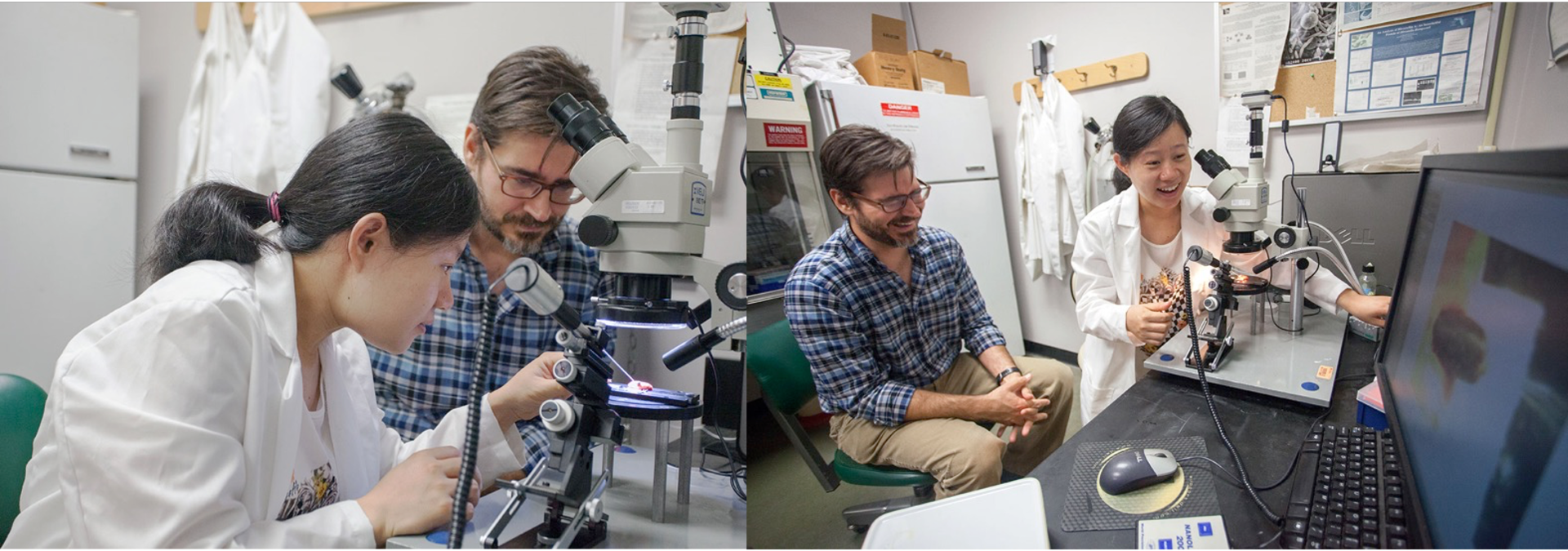Dr. Dan Hahn, a researcher at the Florida Chemical Senses Institute (FCSI), and Professor of Entomology & Nematology in the Institute of Food and Agricultural Sciences at the University of Florida has always been captivated by diversity in the natural world. Although he began his journey studying lobsters, his fascination shifted toward insects, which he describes as “hyper-diverse” and essential to ecosystems. Insects play critical roles in ecosystems ranging from crop pollination to controlling harmful species, sparking Hahn’s lifelong passion for understanding insect behaviors and their interactions with the world.
Hahn’s research, deeply rooted in sensory biology, delves into the factors that regulate feeding and attraction in insects. His questions range from how mosquitoes choose human hosts or egg-laying sites to how agricultural pests select host plants for their young to feed on. These inquiries are driven by the need to improve pest control strategies and enhance agricultural yields without relying heavily on pesticides.
Over the years, Hahn has led diverse projects in insect biology with significant real-world impacts, addressing issues such as pest control, crop protection, and disease prevention. His work spans understanding insect hibernation to disrupt pest survival, developing sterile insect techniques to curb mosquito populations, creating sustainable alternatives to traditional pesticides, and tackling overlooked pests like biting midges (also known as “no see ums” at the beach). Hahn’s approach blends innovative, forward-thinking research with practical solutions, ensuring his findings deliver tangible benefits to stakeholders. His work is supported by organizations like the National Science Foundation, the Centers for Disease Control, and the National Nuclear Security Agency, underscoring the broad-reaching significance of his research, from protecting crops to enhancing public health and national security.
Recently appointed as an Associate Director of FCSI, Hahn, will help guide the institute’s research focus and foster collaboration across disciplines. His expertise in invertebrate chemosensation as well as his positioning in UF’s Institute of Food and Agricultural Sciences strategically ensure those areas of focus are seamlessly integrated in the FCSI. Reflecting on the importance of work he and his colleagues in IFAS are performing, Hahn shares, “We hope to use how insects sense their world to disrupt bad insects from doing things like transmitting diseases and eating crop plants, while conserving beneficial insects and making control even more affordable. To my mind, the study of insect chemosensation is all about protecting people’s homes, health, food, and livelihoods, while helping us be effective stewards of our natural resources and the environment.”
The FCSI has played an integral role in fostering Hahn’s research and providing a collaborative environment where ideas flourish. The institute’s focus on sensory biology aligns perfectly with Hahn’s work, pushing him to explore new questions and applications. “The resources and community at FCSI have allowed me to innovate and extend the reach of my research,” Hahn notes. “It’s a place that encourages bold ideas and supports the hustle required to turn them into reality.”
Hahn’s journey exemplifies the intersection of curiosity, innovation, and dedication. Through his work, he not only advances our understanding of insect biology but also develops solutions that directly impact human health, agriculture, and environmental sustainability. As he continues to explore the sensory world of insects, Hahn’s research is a good example of the power of collaboration and the importance of translating science into meaningful change.

